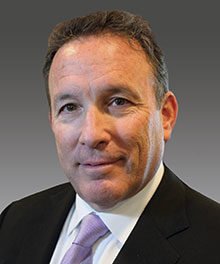Staying Relevant

You’ve probably read that T-Mobile and Sprint were making the rounds in Washington this past week to persuade regulators to approve the $26.5 billion merger they announced last Sunday. They say it’ll allow them to build a wireless network that helps us keep pace with China, create thousands of jobs, and bring down prices for consumers.
It’s too soon to tell what will happen, given that regulators stopped the two companies from merging once before. Nonetheless, this news is a good reminder of the backdrop against which many middle-market firms operate these days. Giant competitors have the potential to become even larger – like Amazon when it acquired Whole Foods. And with technology changing the economics of many industries, M&A action is shaking up fields from healthcare to media.
So how can a middle-market firm keep its edge in this environment? One way is by maintaining a very nimble culture – an area where big companies are often at a disadvantage. Here at Marcum, for instance, we find that our entrepreneurial culture is a tremendous asset when it comes to anticipating and staying ahead of our clients’ needs. We can get things done and innovate at a pace that’s hard for giant firms to match. (Maybe we can give T-Mobile and Sprint a few pointers).
Everyone’s operating in a very unforgiving market these days. To stay competitive and maintain momentum, Marcum continually looks to expand our service offerings as well as our geographic footprint, so that we are there with the expertise our clients need, where and when they need it.
We stay relevant to our clients by growing both organically and through strategic mergers and acquisitions.
Sometimes we pursue a merger to expand our bench in a particular sector or service category, such as our combination with Cornerstone Accounting Group in 2013, which was a prominent firm in the real estate industry. Other times, a merger expands our geographic footprint. Frost, Ruttenberg and Rothblatt in the Chicago area gave us our first foothold in the Midwest region in 2015. A merger can also add more bandwidth in an industry where Marcum already has a significant presence. DGLF CPAs in Nashville, for example, which also joined Marcum in 2015, strongly complemented our national construction practice.
Beyond operations and logistics, the greater challenge is integrating people and cultures without disrupting the success that is already there. Over time, Marcum has figured out how to make this work in a way that adds up to more than the sum of the parts. Continually adding new expertise, new talent and new resources enables Marcum to keep pace with our clients and grow in the ways that they need us to grow. That’s the biggest challenge for middle-market firms looking to compete in a market increasingly dominated by large players.
Who knows? Maybe T-Mobile and Sprint will take a page from Marcum’s playbook. But whether or not their deal ends up going through, there’s one thing I’m sure of right now: My phone bill is too darn high.
